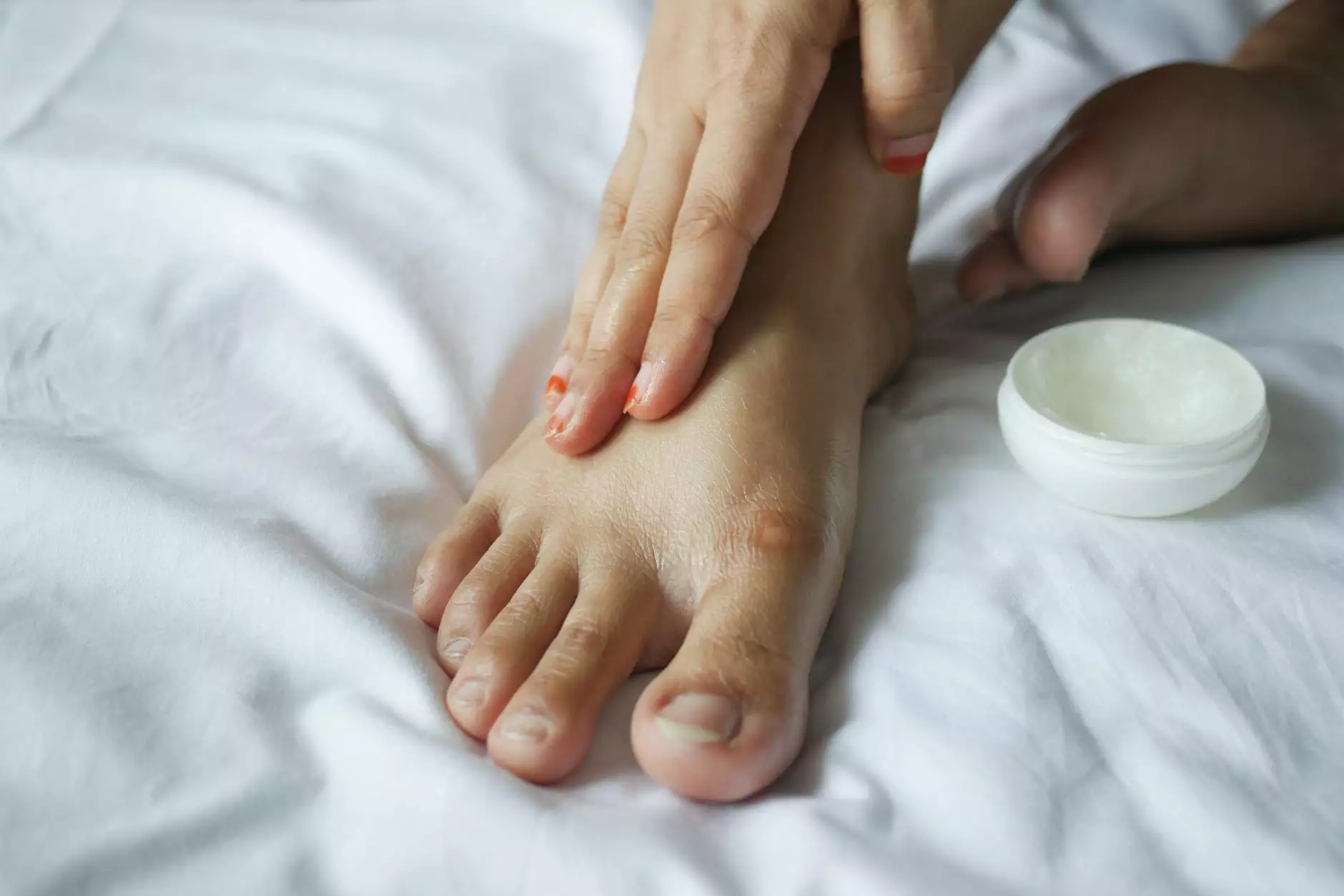Treating Different Types of Rashes

Introduction
Welcome to The Enchanted Bath's guide on treating different types of rashes. Rashes are common skin conditions that can cause discomfort and irritation. In this comprehensive guide, we will cover various types of rashes and provide effective treatment options to help you find relief and improve your skin health.
Understanding the Different Types of Rashes
Rashes can be caused by various factors such as allergies, infections, environmental factors, or underlying medical conditions. It's important to identify the type of rash accurately to determine the most suitable treatment approach. Let's explore some common types of rashes:
Allergic Rashes
Allergic rashes occur when the skin reacts to allergens such as certain foods, medications, or environmental triggers like pollen or animal dander. These rashes often present as red, itchy patches or hives. If you suspect an allergic rash, it is best to avoid the trigger and seek medical advice for appropriate antihistamines or topical creams.
Eczema
Eczema, also known as atopic dermatitis, is a chronic inflammatory skin condition that leads to dry, itchy, and inflamed skin. It commonly affects infants and children but can persist into adulthood. Managing eczema involves a combination of moisturizing, avoiding triggers, and using prescribed medications to reduce inflammation and itching.
Psoriasis
Psoriasis is a chronic autoimmune disease that causes rapid skin cell growth, resulting in thick, red patches covered with silvery scales. This condition can be managed with topical treatments, light therapy, or systemic medications, depending on the severity. It is crucial to consult a dermatologist for a personalized treatment plan.
Contact Dermatitis
Contact dermatitis occurs when the skin comes into direct contact with an irritant or allergen. It presents as a rash, redness, swelling, or blisters. Identifying and avoiding the triggering substance is vital in managing contact dermatitis. Topical corticosteroids or soothing creams can provide relief.
Fungal Infections
Fungal infections, such as ringworm or candidiasis, can lead to rashes with characteristic redness, itching, and scaling. Antifungal medications, both topical and oral, are often prescribed to treat these types of rashes. Maintaining good hygiene practices and keeping the affected area clean and dry can also prevent recurrence.
Treating Rashes Effectively
When it comes to treating rashes, it's essential to address both the symptoms and underlying causes. Here are some proven strategies for effective rash treatment:
1. Maintain Proper Hygiene
Keeping the affected area clean and dry is crucial to prevent infections and promote healing. Gently cleanse the area with mild soap and lukewarm water, avoiding harsh scrubbing.
2. Moisturize Regularly
Moisturizing the skin helps restore its natural barrier and prevents dryness, which can worsen rashes. Choose fragrance-free, hypoallergenic moisturizers and apply them generously to the affected area multiple times a day.
3. Identify and Avoid Triggers
If your rash is allergy-related or triggered by certain substances, strive to identify and avoid them. This may involve making dietary changes, using hypoallergenic products, or limiting exposure to irritants.
4. Seek Medical Advice
If your rash persists, worsens, or is accompanied by severe symptoms such as fever or swelling, it is crucial to consult a dermatologist. They can accurately diagnose the rash and provide appropriate treatment options based on the underlying cause.
5. Utilize Over-the-Counter Treatments
For mild rashes, certain over-the-counter creams, ointments, or antihistamines may provide temporary relief. However, it is important to follow the instructions and consult a healthcare professional if the symptoms persist or worsen.
6. Consider Prescription Medications
In cases of severe or persistent rashes, dermatologists may prescribe specialized medications, such as corticosteroids, antifungals, or immunomodulators, to target the specific cause and provide relief.
Conclusion
With proper understanding and timely treatment, you can effectively manage and treat different types of rashes. The Enchanted Bath is dedicated to helping you achieve optimal skin health by providing high-quality products and comprehensive information. Consult a dermatologist for an accurate diagnosis and personalized treatment plan tailored to your needs. Take care of your skin, and say goodbye to rashes!










